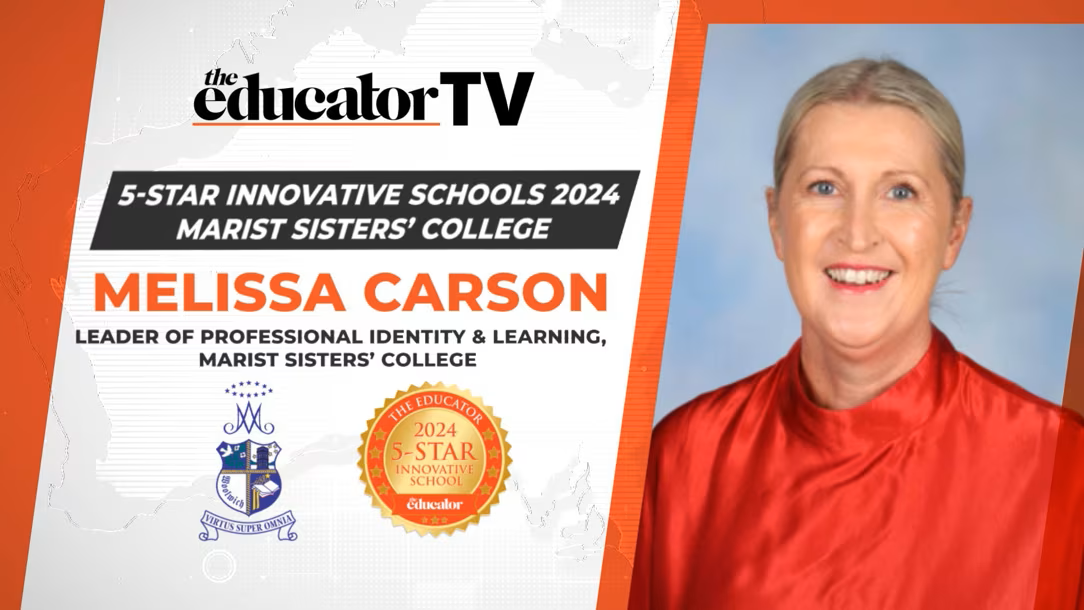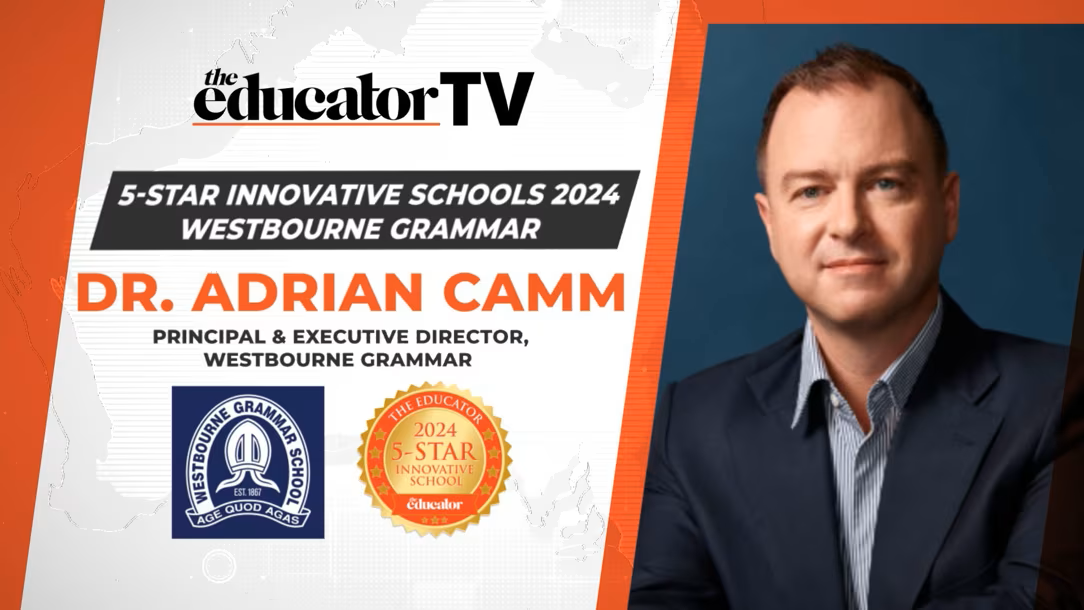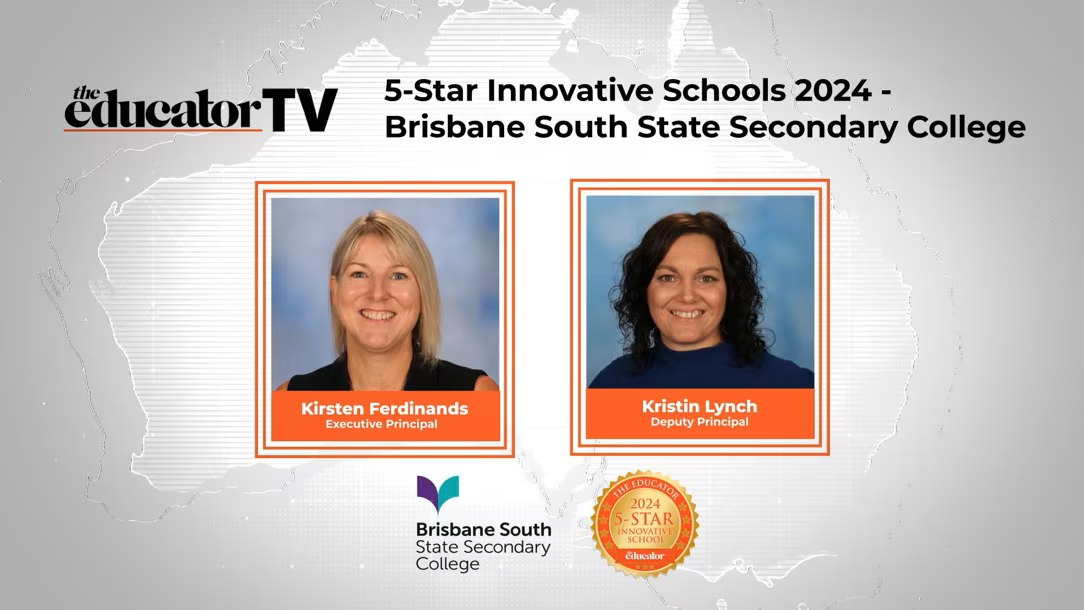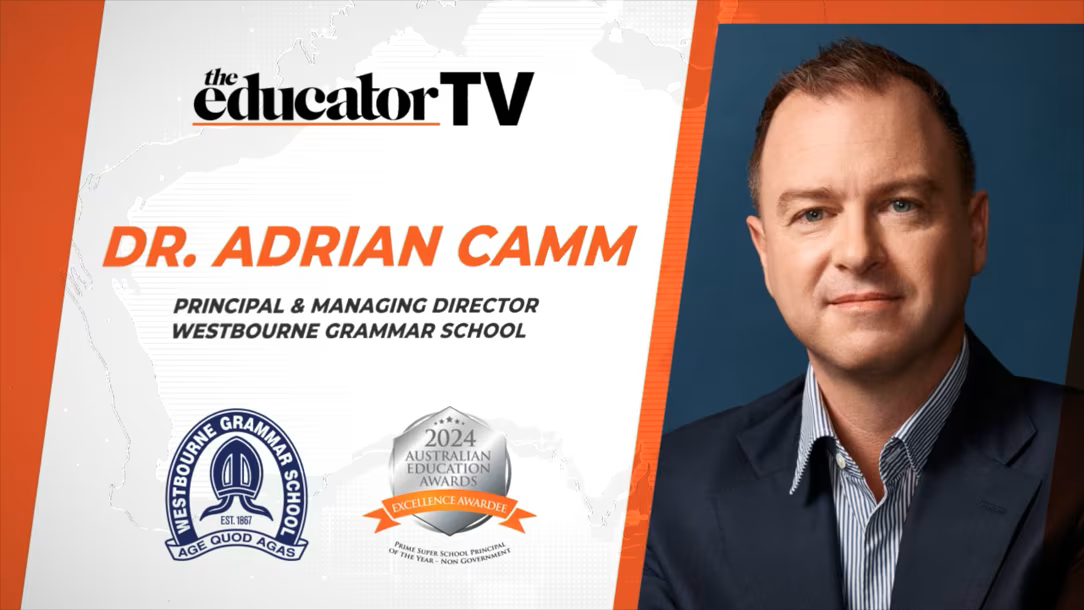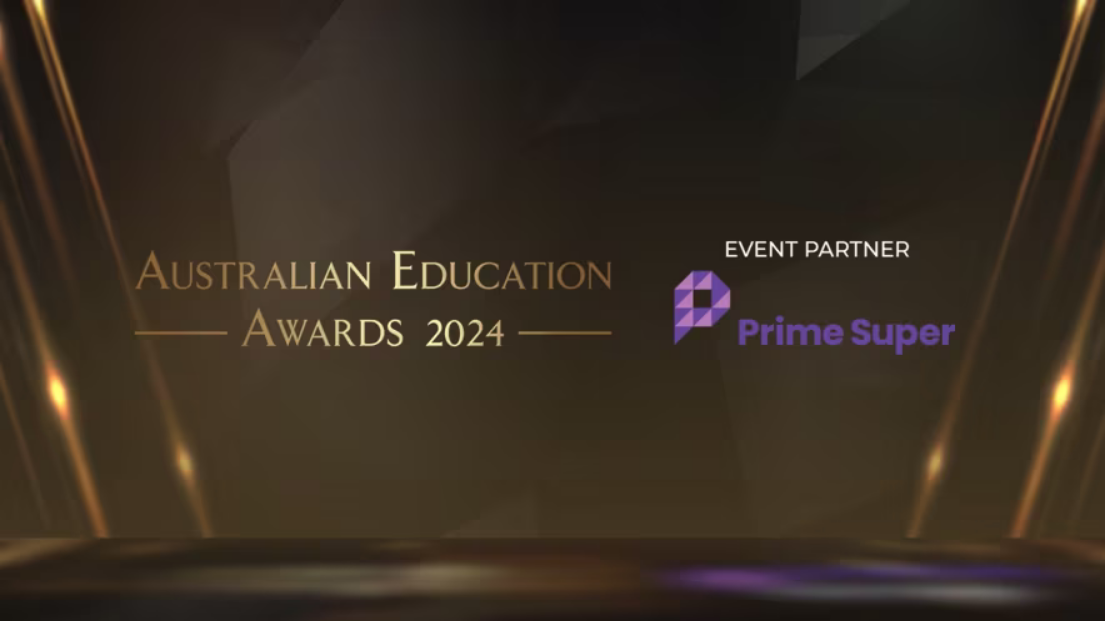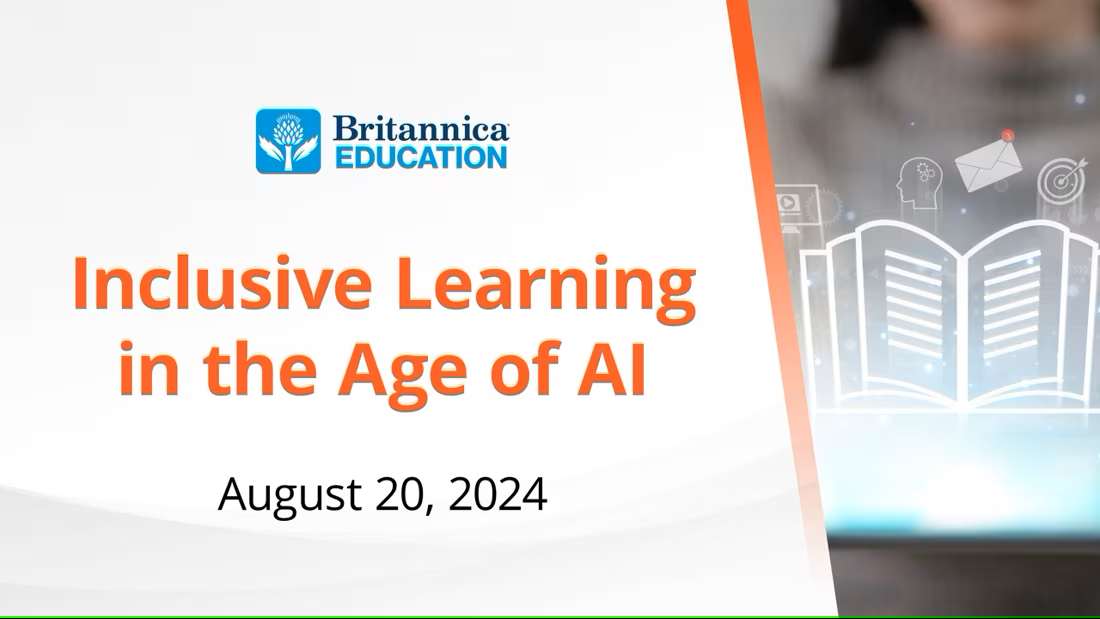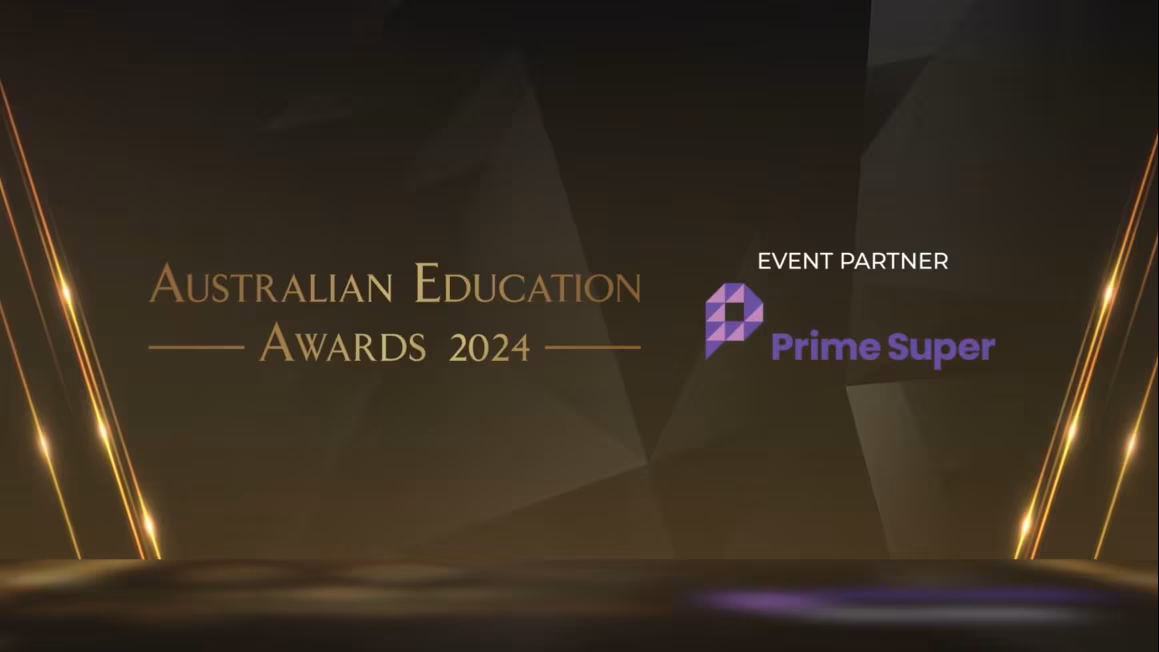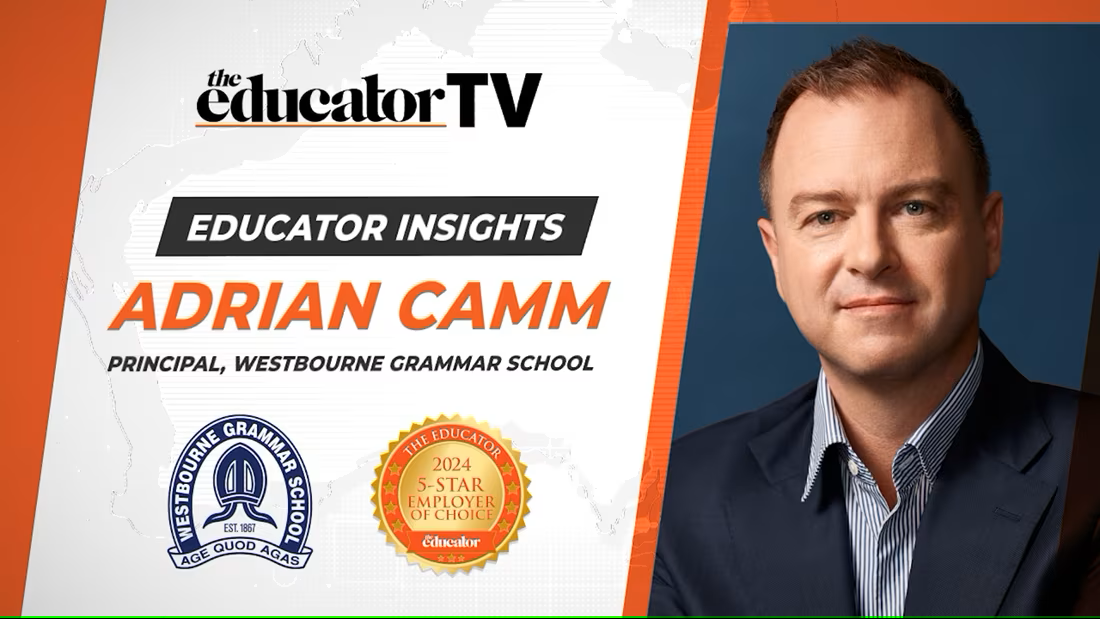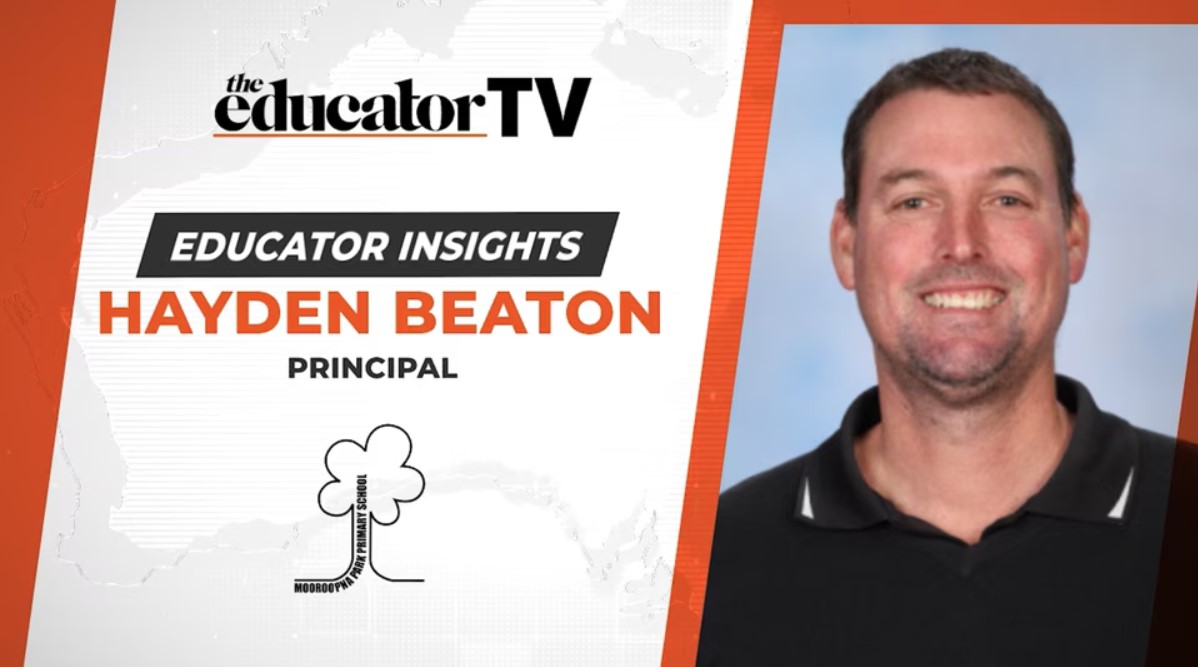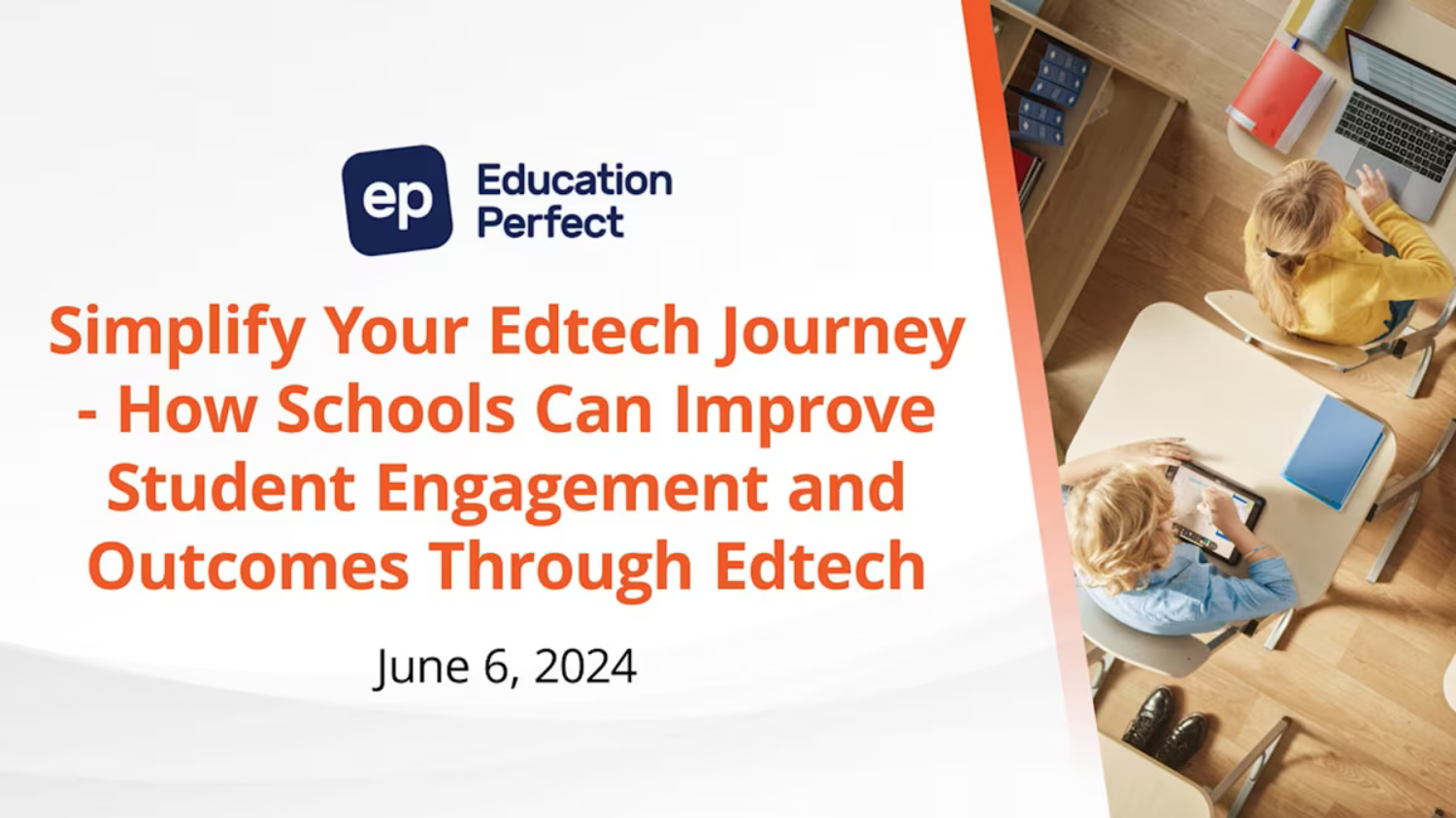School’s digital strategy keeps staff and students ahead of the curve
Liam Bassett, director of digital learning at Westbourne Grammar School, tells The Educator how the school’s embrace of AI and student voice coalesce for campus-wide success.
To view full transcript, please click here
Brett Henebery [00:00:09] Hello to all of our viewers. I'm Brett Henebry, Editor at The Educator. And today we're joined by Liam Bassett, the Director of Digital Learning at Westbourne Grammar School in Melbourne. The school was recently recognized as one of The Educator's 5-star Innovative Schools for 2023. And today we're going to be talking to Liam about the digital strategy that underpins this innovation. Now, Liam, I want to ask you, first and foremost, how was the digital strategy created and enacted?
Liam Bassett [00:00:35] Thanks, Brett. So our digital strategy was created in 2021. And it followed broad consultation with staff, students, the broader parent community, and really, at the time, we were looking not only at our context and our school and what was happening in our school, but also going beyond the four figurative walls of the school and going oh, what's going on in society? What's actually happening in the world? And so when we created this digital strategy, absolutely, we wanted to look at teaching and learning practices. But we also wanted to look at all aspects of the school. So things like business operations, for example, and, and knowing what does it mean to not only be contemporary in 2022, and 2023. But what does actually mean to be on the front foot of these future trends and implications that are occurring, you know, for businesses and our broader society.
Brett Henebery [00:01:30] And what kind of support is given to staff in terms of innovative development?
Liam Bassett [00:01:35] So when it comes to innovative development, I mean, there's two things that immediately come to mind we, we view all staff members as having the capacity to be leaders in our school. And when it comes to leadership, absolutely, there's that that notion of new initiatives, new ideas, new practices, and we really want to enable that for our staff, and to give them that permission to take risks and to try new things. So we have a Leadership Development Academy here at our school, which we call our learning to lead program. And the approach behind that is to really meet leaders are at their stage of their leadership journey. So if you're an aspirant leader goes, Okay, what are your values? What are your morals? What's your stance? What is it? What does it mean to be a leader in our school, but then also, on the other end, looking at people who are firmly embedded in leadership and have been for four years and saying, Well, how do we bring that even bring that forward and enhance the fantastic things that you're already doing? So that Leadership Development Academy, again, really positions leaders as having the ability to innovate and to introduce new things. The other program that we have at our school is our, our fellowship, that's something that we've introduced this year. And what it entails is staff beyond put forward an application and to actually receive some funding to basically do anything that they'd like, as long as it kind of enhances some innovative program. So as an example, we've got someone who's heading off to New York City next year, and they are going to be attending a range of musicals, arranged productions, and then to look at, okay, what's innovative about these, these huge productions that are occurring overseas? And what are those same things that we can now apply in our context.
Brett Henebery [00:03:19] And what's been the reaction of the staff so far to that initiative?
Liam Bassett [00:03:23] Staff have been genuinely exceptionally positive about it. And I think, to have the opportunity to not only have time carved out in, you know, a busy week at that busy year, and to say, look, we value your leadership, we value your professional practice, and we want to place that that time and care into it. People have been appreciative of that. And to see the impact that that's now had in our school is has been amazing. We've had over 1[00 staff members involved in that leadership development program. It's been so successful that we're also doing it again next year. And that, again, brings in small group coaching, it brings in workshops that are run both by internal staff members, but then also external people to in drawing from evidence based research as well. So really equipping people with not just these, you know, these broad ideas that we think you're actually great, but to actually say, Look, this is what the research suggests. And here's some really fantastic examples that have happened in our school, but also outside of our school, too, from a range of different industries.
Brett Henebery [00:04:27] Fantastic. Now, as the school's director of digital learning, can you tell us a bit about the school's approach to generative AI, which is obviously a very dynamic thing at the moment for education?
Liam Bassett [00:04:39] Definitely. And I think our approach Brett very, very early on, was coming at it from a sense of curiosity, but also practicality to we started looking at generally of AI in November 2022. It was probably the day after maybe the a few days after something like chatGPT we'll chatGPT had been introduced and what was accessible. And so very early on, we said, well, we want to be on the front foot of this. And we could see what was happening, both statewide and nationally, and also internationally overseas with the US. And we said, well, we want to be on the front foot of this. And we want to equip students with the skills to be able to use generative AI effectively. And the same thing for stuff too. And coming out from that, that that approach of curiosity, and that question of okay, what does this now mean for our teaching and learning practices, has been really valuable. So very early on in 2023, we created our school's AI guidelines, and we've got a staff version for that we've also got a student version, we've wanted to bring our community on that journey. So we've been creating some community articles and written pieces, there's been some parent videos that have also gone out to actually say to parents, hey, this is what generative AI is. And here's why it is going to be able to profound impact in our world. And we've already been seeing that throughout this year. Our principal atrium cam has also created a podcast that brings in internal guests, external guests. And again, that's structured all around artificial intelligence. So as a school, where we've been wanting to embrace generative AI, and to use it as part of our teaching practices to support student learning, but also broadly to equip them with the skills that they'll be using, once they finish their schooling journey here at our school.
Brett Henebery [00:06:33] There's no doubt going to be a very big role for AI in that in the industry is moving forward. Now, there's also been a lot of buzz around the school's eSports studio, how did that come about? And how beneficial is that for students?
Liam Bassett [00:06:46] Our eSports studio was created during 2023. And this was following some really beautiful conversations that we had with students in 2022, where they said to us, hey, video games are really important to us. There are a range of ways that we use video games to learn outside of school. And we would love to be able to bring that into the school environment. So we were quite reactive to what the students were wanting them. We also knew, and we're looking at the I guess, again, that brought up eSports industry, which is booming, it continues to grow every year. This year, as an example, the International Olympic Committee created the first ever eSports series week. So for us as a school, it made sense to go okay, well, we've got students who want to be able to develop skills through video games, we want to create a learning environment that's progressive and also enables experiential learning. And we could see that that industry in this real world skills, so we set off on a journey to create our esports studio. And that was created largely by the students and students were saying, Here's what we want to have in our studio, we want to have, we're going to have some gaming PCs, we want to have virtual reality, we had a student who was very passionate about aviation, we said, You know what, we're going to build a flight simulator for students like you who can develop real world skills to go on and to train to become a pilot. Now, we also had a past student as well, who's a racecar driver. So we built and designed a driving simulator in this eSports studio. We also knew that, you know, physical exertion and movements really important. So we wanted to have a space in the eSports studio where we could have dances in there with video games, like just dance. And then we've also got those sandbox style games like Minecraft education, and we wanted to carve out a space for that, too. So there are a range of touch points that we've got in this eSports studio. And whilst it is called an Esports studio, fundamentally, it's all about experiential learning. And you hear this example a lot. And I love it right for a student to be able to go well, I'm studying and learning about ancient Egypt, and to be able to put a virtual reality headset on that is a headset that is contemporary, you know, least in 2022. And to put that headset on and to physically walk around the ancient pyramids, is his gold. And to then not only have a passive learning experience, but to be able to actually interact in that environment in that 3D space is really powerful. So we have those skills like teamwork, strategic thinking, adaptability, you know, curiosity, all of those skills come in through this eSports studio. And I think, coming out of this eSports studio with them going okay, well, we now we now need to create some programs to support this because we were running sessions very frequently, and we said, well, we want to, we really value this and we can see the learning benefits that it's having. So we've created our esports program now which involves students from years 10 to 12, and they're able to choose to be a part of eSports in lieu of a traditional school. Well, and that's so exciting because students are starting to see that we actually value that equally as traditional sports. And the question always is, well, okay, what about, you know, the well being benefits with sport and the physicality. And we still have that with these sports. So at the start of our training sessions, students will be exercising, running as a team, there'll be well being links in there. We know with the broader eSports industry that teams are physically fit, they have dietitians that work on the team. And so we really want to teach students about that the eSports industry as a whole as well, and to go, Okay, if you're like, we've got one student who they've said to me, I'm not, I'm not into video games, they go, I'm not I'm not a video game player. But I still want to be involved in the eSports. Industry. And I said to the student, this is this is exactly what it's all about. Because there are so many careers that stem from eSports. And so to have the eSports studio in the eSports program that not only supports students who are into video games, but students who are just interested in that broader industry and say, Well, I'm actually interested in cinematography, I want to be able to go into live commentary, I want to go into video production, I want to go into coaching, it's like great we can we can enable that all through these programs in the studio.
Brett Henebery [00:11:14] It's such an exciting time is it?
Liam Bassett [00:11:16] It is, it's the biggest challenge is going well. Just the number of students that are interested, like we have hundreds of students who want to go in there every week. And to be able to facilitate that has been really exciting.
Brett Henebery [00:11:32] Now, as a school, you champion student involvement in your digital strategy. What's one of the ways you're doing this with the school's tech titans?
Liam Bassett [00:11:39] Our tech titan group is a student led group, their students from year 7 to years 12. They support a range of our technology initiatives. So they primarily act as the student voice when it comes to technologies they advocate for changes for new ideas. They also support stuff in terms of running sessions on how to develop skills and using tools like Canva, or Microsoft Teams or Microsoft OneNote. they problem solve it issues and challenges. But most importantly, we also equip them with real world skills. So students engage with it training programs that they complete individually at a self paced program. And those are programs like CC&A skills in getting Microsoft certifications, or Adobe certifications. And these are the skills that they can then take with them as they move through the school, but then also after school as well. So they really work alongside our staff to enact our initiatives and deliverables and our digital strategy. We've also had students attend our digital strategy meeting. So we have a Staff Committee, which we call that digital transformation committee, and to have students attend those meetings has been has been gold because they often as an example, we're talking about journey of AI last term. And they were saying to us, here are a range of prompts that students are already using in the class to support them as they learn. And so we responded to that and said, Well, look, we want to create a prompts library now we've already got some prompts that teachers can use, how about we actually include some of these student prompts to so that whilst we've got a great group of students using these prompts, we want to make sure that teachers know about them to share them with them. So to have student voice is really important to us, our teaching and learning philosophy inspire at the center of that we have character and agency. So when it comes to our digital strategy and our initiatives to have student involvement in that if the students to feel that sense of agency and ownership over that is, is really powerful. Because ultimately, that's why we're here as a school, right to support student learning, and to really get the most out of students in helping them to achieve their best. So to have student voice as part of that, and to lead a lot of these initiatives is great.
Brett Henebery [00:14:00] Now, can you tell us about the framework for digital pedagogy in school, and why it's important for teachers?
Liam Bassett [00:14:06] It's really important for teachers to have some foundational practices and tools that support them in in, in our teaching, we designed what we call a digital teaching learning framework, which is really a suite of applications and tools that teachers are able to use as part of their teaching practice. And this was created from receiving feedback from all teachers across the school, from prep to toe with our range of campuses, and also students as well. And how we approach that was to say, Well, what tools are you currently using in your classroom? How are you using them? And most importantly, why are you using them in this way? And as a result of that, that, that that approach? We've been able to design that that framework to say, Well, look, here are a range of tools that as a school, we know are able to support us in our pedagogical approaches. It's teachers really appreciate it because It provides some consistency for students and for teachers. And for a student to be navigating a very busy school day. And to have a thread a line that carries through with them to go, Okay, well, I've just come from maths and now I'm off to humanities, now I'm off to English, or I was in grade five. And two years later, I'm now in year seven, to have the same tools or the same type of experience to carry through with them, it's really beneficial in helping to reduce that cognitive load. And it enables teachers and students to really focus on the learning, which is what it's all about. So technology doesn't inhibit it, it actually enables it.
Brett Henebery [00:15:35] Now, finally, what role does data have in supporting the teaching and learning environments at the school?
Liam Bassett [00:15:43] We have a data analytics strategy at the school. And I think underpinning this is this notion that, anecdotally, it's really great to say, yeah, we've got all these great new programs and initiatives that it's leading to student outcomes. But we also want to be able to measure that and to be able to have qualitative and quantitative data that really signals to us that what we're doing is, is right and is effective. So we have a data analytics strategy. We also have a designated business intelligence developer, who works in Microsoft Power BI to develop unique Westbourne Grammar School analytic dashboards, these dashboards, pull in data from a range of different sources. It's not all just academics. So we're able to see data pertaining to like languages spoken at home, for example, so we're very multicultural school here, which is, which is beautiful. And we see data with that we're able to see the PAT testing data, the NAPLAN data, we're able to see their formative assessment data, their summative assessment data, we're able to bring in our pastoral care data as well. And to have this in a centralized tool for teachers that's accessible. It means that teachers can not only be reactive, but they can also be proactive when it comes to that their teaching and learning approaches. So these dashboards that we've introduced, and are continuing to refine and create it, it underpins this notion that we've got to have data to support all these great things that we're already doing, and to know that we're on the right track, which we are, but then to also identify what do we need to do next, for our next digital strategy, and for our next programs and initiatives moving forward.
Brett Henebery [00:17:24] There's some tremendous stuff happening at the school. Thank you very much for that, Liam, I think that the year ahead is going to be a very exciting month for the students and staff from this element.
Brett Henebery [00:17:34] Absolutely. Looking forward to it.
Brett Henebery [00:17:38] And just I guess, in closing, what's the what's the next big thing there at Westbourne grammar heading into 2024? Is there any, any other exciting initiatives coming up to you you're at liberty to divulge?
Liam Bassett [00:17:49] Whoa, that's that? That's a good question. Some of the things that come to my mind. So I think if I step back a little bit as a school, we know that right now, and moving forward, things are volatile, things are complex, things are challenging, students are entering a world that is very uncertain. And so as we come to the end of our current digital strategy, were now thinking ahead to Okay, for next year, what's our next three year digital strategic intent. And the digital strategy that we've just come to an end of, or about to come to an end of has been extremely successful. And we need to make sure that that momentum continues and that we still feel it, we still know that students are developing the appropriate skills. An example of that is next year, we're launching a brand new subject for our United students, which is called future thinking. And really, that that comes in the back of us as a school knowing that we're schools are very great at looking at things that have happened in the past and to go, Okay, we're going to teach you about something that's happened, you know, before. And for us, it's about going okay, well, what's happening right now, but also what's happening in the next five to 10 years. So bring it back to what I was saying before at the start of our conversation, looking at those societal trends when it comes to future focus topics. And going well, how do we how do we educate students about this? So, the subject futures thinking will be a subject that is very multimodal, so students will be engaging with videos with podcasts, with Tiktoks, with books with video games, and students will have choice and autonomy over what tasks they engage with, and how they engage with them. And to link all of those texts with Future Focus topics and to say, well, these are the types of skills these are the types of knowledge that I want to understand. It means the subject is going to be great because students will have a clear sense of agency and autonomy over it. But they're thinking ahead to these next five to 10 years and that's to do with generative AI to do with wearable technologies, virtual reality, the meta versus all of these great things that students tell Unless they're passionate about and interested in, we're able to bring into this subject features thinking. So that's something that we're excited about and is on the horizon. And it's starting in January 2024. We've done lots of planning to get that to get that off the ground, but it's Yeah. Exciting.
Brett Henebery [00:20:17] Fantastic. Liam, thank you once again for your time. And to all of our viewers, thank you for joining us today, and we'll see you next time.
Liam Bassett [00:20:25] Thank you. Thanks, Brett. It's great to chat.



